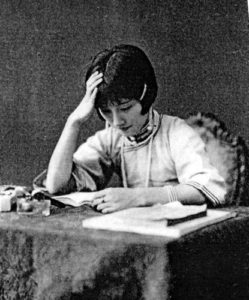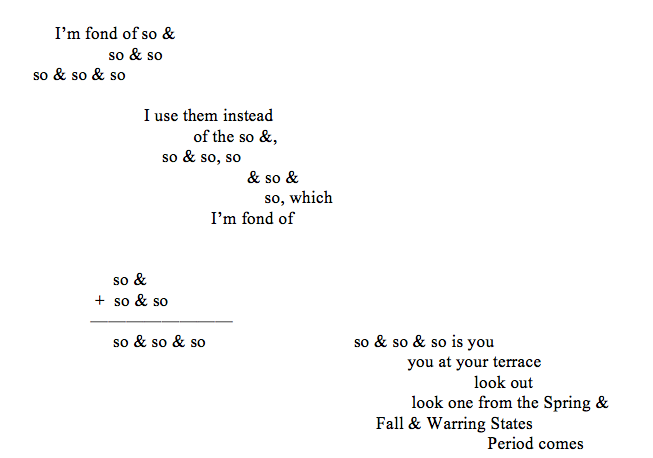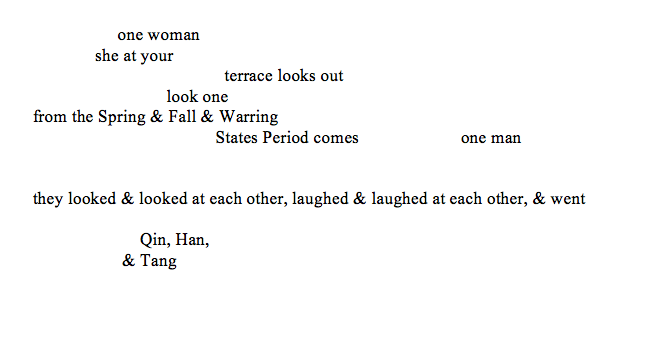John Mulrooney – three poems
John Mulrooney is a poet, filmmaker and musician living in Cambridge, MA. He is author of If You See Something, Say Something from the Anchorite Press and co-producer of the documentary ‘The Peacemaker’, from Central Square Films. He records and performs regularly with a number of groups in the greater Boston area. He is Associate Professor in the English Department at Bridgewater State University. His work has appeared in Fulcrum, Pressed Wafer fold’em zine, Solstice, The Battersea Review, Poetry Northeast, Spoke, Let the Bucket Down and others.
At the Brooklyn Promenade
Blue clouds of the dusk sky
shimmer on the surface of the harbor;
placemats of blue lace on a bluer table,
and then shift back to something more
cloudlike; something less, being only
the things that they are, and reflections at that.
And what of it. All day
sorting a crate of our recent past
which cannot go away
fast enough, dividing stacks
of almost identical diagnosis attempts,
a hundred pages of the unsaid,
layered blue of MRI prints –
a series of study sketches
toward an unfinished work.
This park is the triumph of making,
a template for Sunday afternoons
where I had guided her slowly,
so careful as to be clumsy,
along the promenade to sit
on a bench under Brooklyn Bridge,
its vast arc the manifest perfected
sum of some quantifiable knowledge,
because it was something she could do,
just to get out for a while.
Today, a man photographs
the cobbles along the walkway
littered with cellophane and
pink strands from a feather boa,
a newspaper soggy with urine,
its letters running like mascara;
these are all this day alone,
against the irreducible sky
and the splendor of structure;
what the wind has done
to make this day particular.
And these shapes changing
on the water like like or as
are not even, cannot be what I sing
because memory is death; it kills the things
you cherish or dread and replaces
each one with your memory of it:
a hollowness built of the real.
And suddenly it was almost me who
could not walk to a bench by the bridge,
although it never was,
although my arms and legs
obey my commands,
do what I tell them but never what I want:
wrong and helpless,
I span one to the other
because all I can do is identify
make myself metaphor,
a thing that might look like,
that you think is but isn’t.
And I want to dive,
that marriage of plummet and jump,
in below the refracted sky,
to the water’s silence
and come out on the surface
that might make me one of
these changing things I cannot change,
which will erase my clumsiness
and redraw me as shimmer.
~
Autumn Walk After Jodorowsky
More métier en scene
than inchoate vagabond
some summer in the knees
some summer in green
and of course in the water
were protean secrets,
the day and clock pulse
still too small to retain
an atmosphere true but
in the forge of gravity
The Empress of autumn
sought the star, summer
plunged below and yellow
irises found hiding spots
and our eyes seeking them
confirmed that we all sought
the commensal beauty
and usefulness therein –
big fish and little fish
bandicoot and boa –
blood is protein knowledge
on autumn’s whistle stop
or winter’s all aboard,
but summer yes she bleeds –
rats and racoons wreak
havoc around her feet
cluttered under composts
of spring that winter nicked.
~
Poem on Madonna’s 50th Birthday
here is August soaked with reminder
that the world is material that changes
there’s a flag at half mast
for someone who didn’t even make the papers
the rainy season comes upon us
like it was the tropics like the
flutters and hums on Bleeker
were south beach waves and breezes
the flutters and hums on Bleeker
that becomes a material that changes
Paparazzi armies lay siege to the ineffable
dumpy men made of rain
make glimmer solid in a flashbulb
and Elvis Presley 31 years dead
waits with us to reinsert mystery
into the material substance of our lives
says with us we ache we ache we ache
comes to love us
as we come to love ourselves
by waiting upon those
we desire to both want and be
until memory strikes a pose
and crosses over the borderline
of our love.
Continue reading




